 Commitment to Food Safety and SDGsSafety, Security& SDGs Initivatives
Commitment to Food Safety and SDGsSafety, Security& SDGs Initivatives
Watari Group has obtained JFS certification.
JFS-A Standard
Ebetsu Agricultural Products Center / Narita Distribution Center / Watari Seika
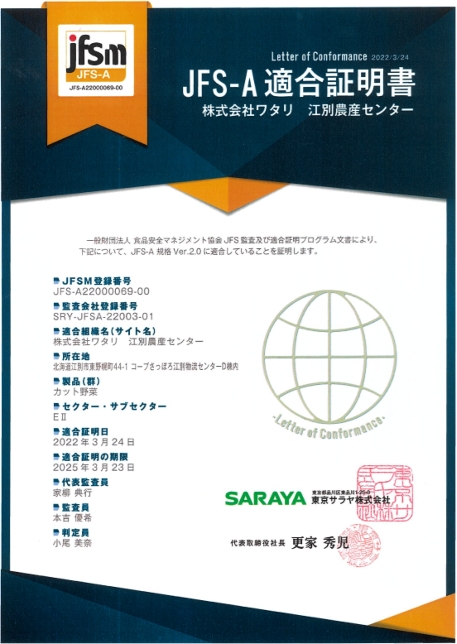
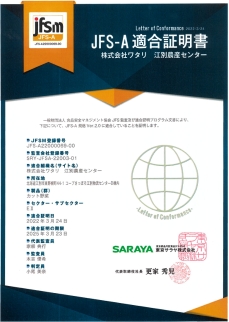
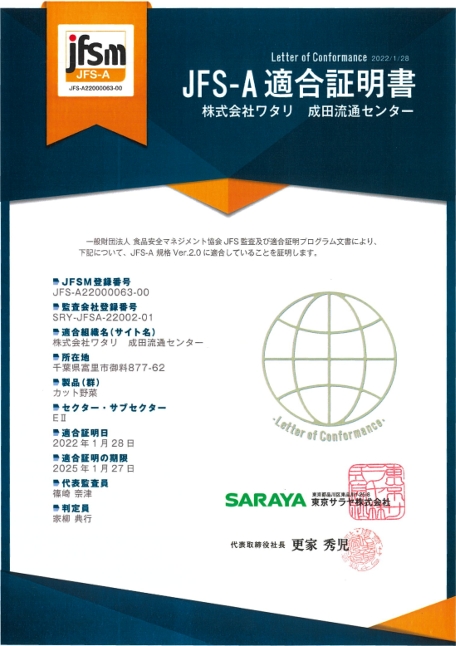
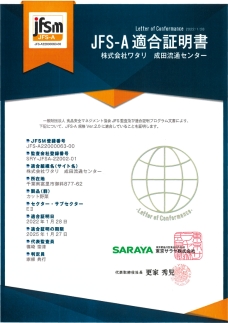
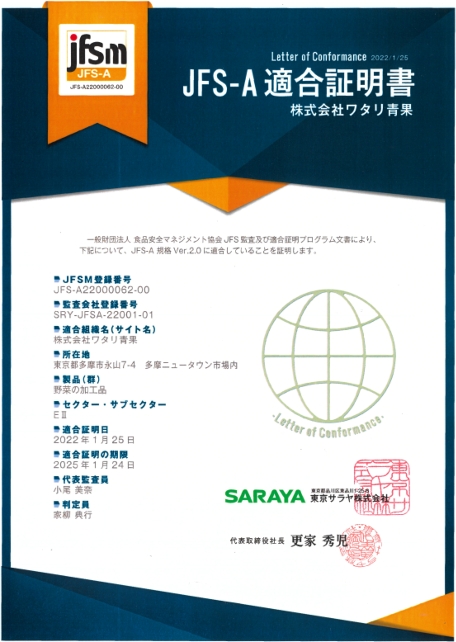
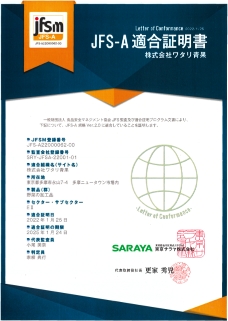
JFS-B Standard
Hokkaido Branch
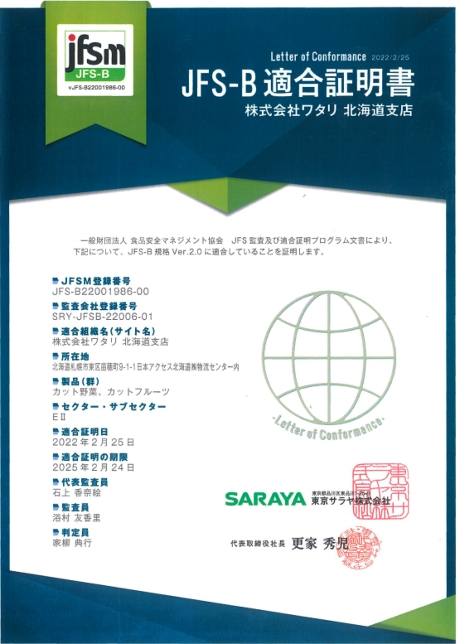
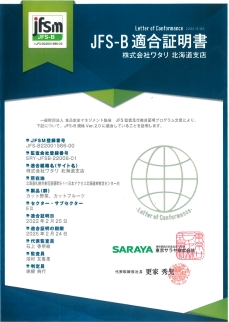
As of June 1, 2021, it has been mandated that, in principle, all food business operators must implement hygiene management following HACCP, an internationally recognized food safety management system. Therefore, our company has been working to enhance food safety management by aiming to obtain JFS certification, which includes Codex HACCP (7 principles, 12 steps) as a requirement and is audited by a third-party organization. We do not consider certification to be our final goal. Moving forward, we will continue to enhance food safety management and ensure the delivery of safe and reliable products to our customers.
- JFS standard is a food safety management certification and conformity assessment composed of three key elements: Food Safety Management (FSM), Hazard Control (HACCP), and Good Manufacturing Practices (GMP). For more details on the JFS standard, please visit the Japan Food Safety Management Association website.
https://www.jfsm.or.jp/scheme/whatisjfs/
SDGs
(Sustainable Development Goals)
Watari Group is working on SDGs through the fresh produce business.
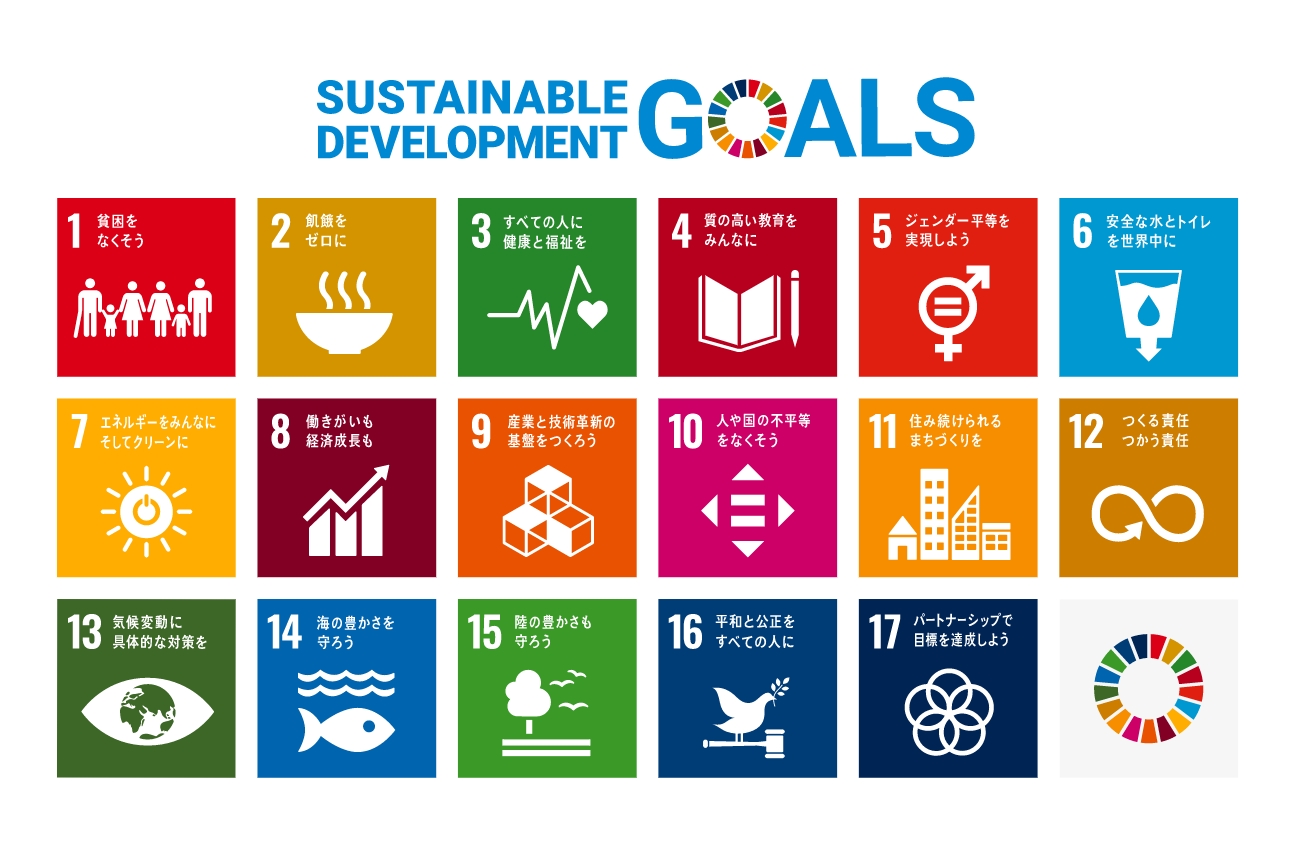
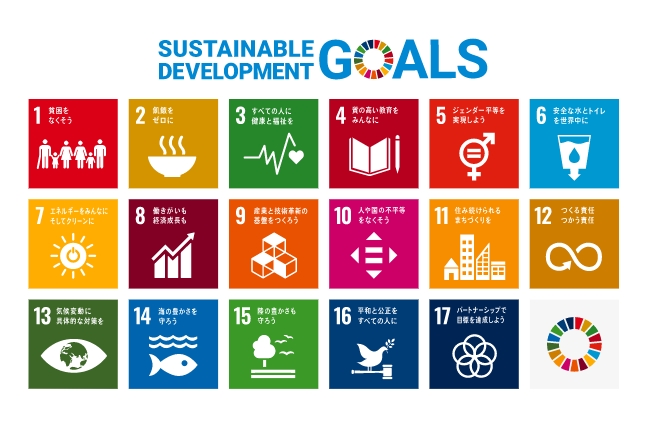
Initiatives for Employment of Persons with Disabilities
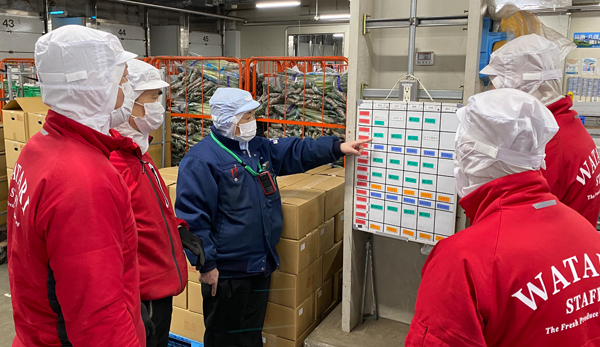
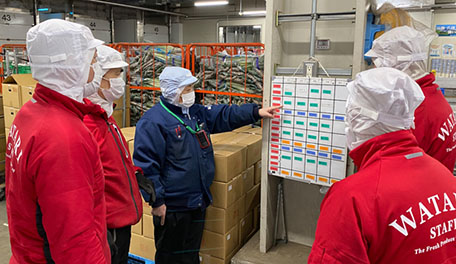
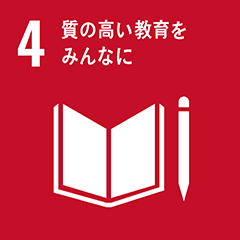
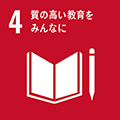
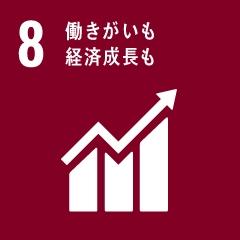
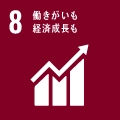
At the Ebetsu Agricultural Center, we hired five individuals with disabilities in the 2023 fiscal year.
At the Center, employees with the qualifications of Employment Counselor for People with Disabilities provide support. To ensure a safe and comfortable working environment, we visualize the work process, including who does what and at what time, and strive to establish a system and environment that allows for step-by-step growth.
Initiatives for Building a Healthy and Longevity Society
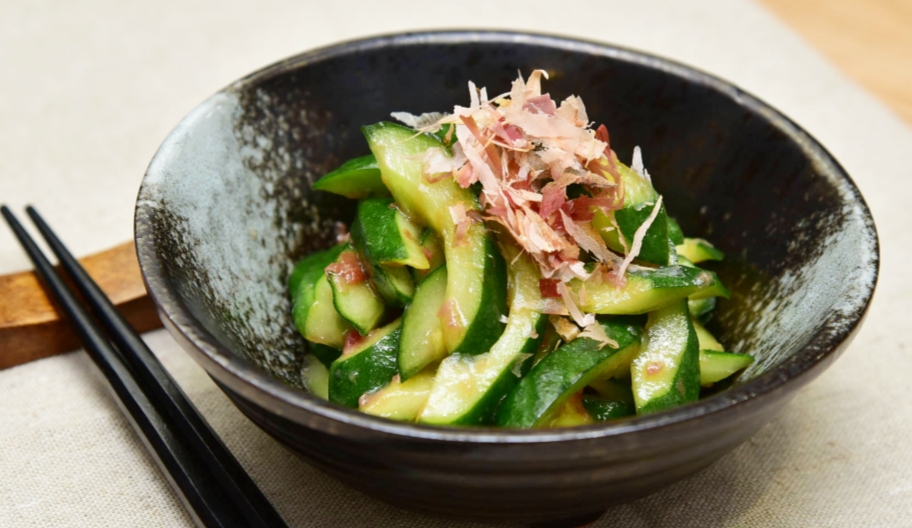
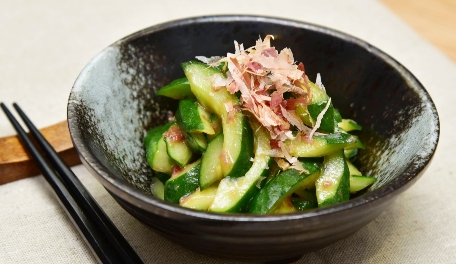
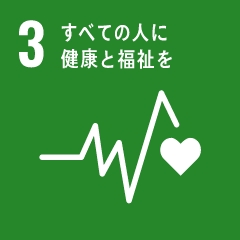
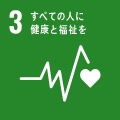
We have established an in-house team of registered dietitians and a recipe development department. From the perspective of nutrition education and health, we propose various ways to enjoy fresh produce, aiming to contribute to the creation of a society that supports longevity and well-being.
Initiatives for Reducing Greenhouse Gas Emissions
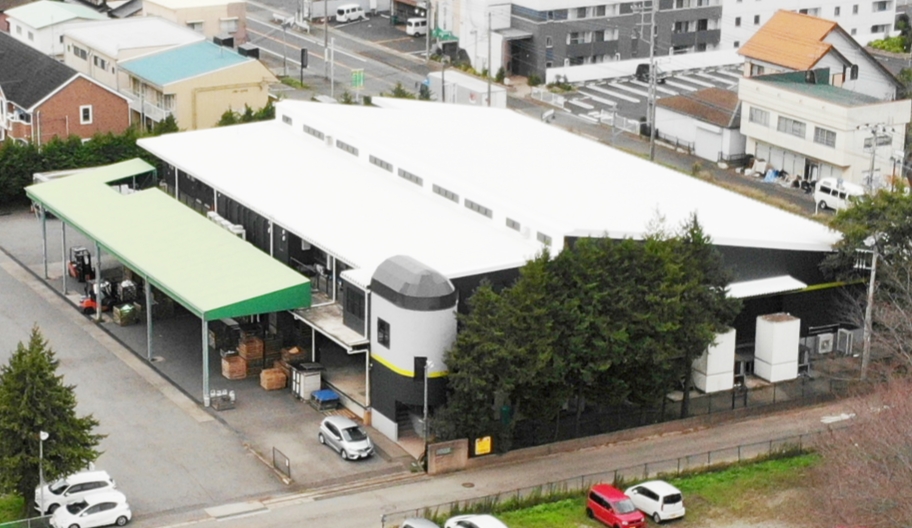
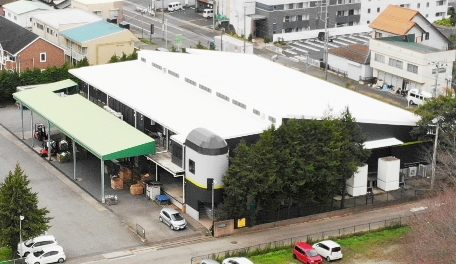


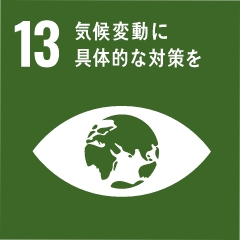
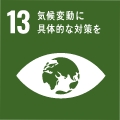
At Watari Narita Distribution Center and Watari Seika Packing Center, a heat-reflective coating has been applied to the exterior to reduce heat absorption from sunlight. At the Okinawa Branch, heat-shielding window films have been installed to enhance heat reduction and lower air conditioning power consumption.
Additionally, at Okinawa Branch, all lighting within the facility has been converted to LEDs, further reducing power consumption.
These initiatives contribute to reducing greenhouse gas emissions generated during electricity production.
Initiatives for Building a Healthy and Longevity Society




We have established an in-house team of registered dietitians and a recipe development department. From the perspective of nutrition education and health, we propose various ways to enjoy fresh produce, aiming to contribute to the creation of a society that supports longevity and well-being.
Hygiene Management Initiatives
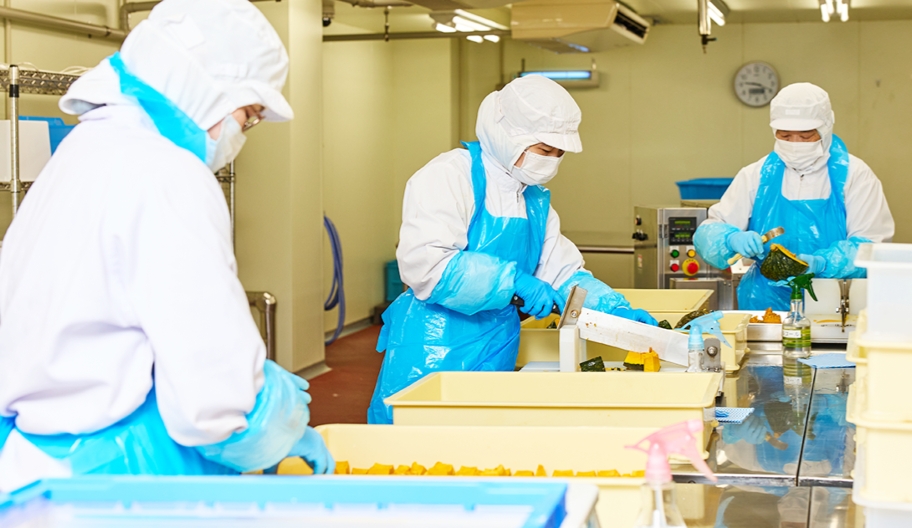
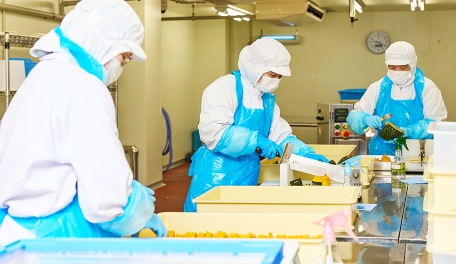
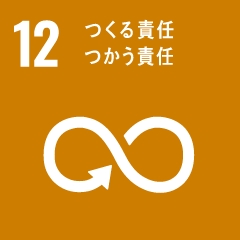
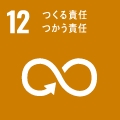
Watari Group implements hygiene management based on the principles of HACCP.
- Receiving at optimal temperature
- Proper temperature control of refrigeration equipment
- Checking the condition of boxes upon arrival
- Careful stacking of boxes
- Removal of defective products
- Strict adherence to hand washing
- Wearing clean work uniforms
- Using hygienic materials and equipment
- Thorough implementation of the 5Ss
Initiatives for Reducing Food Waste
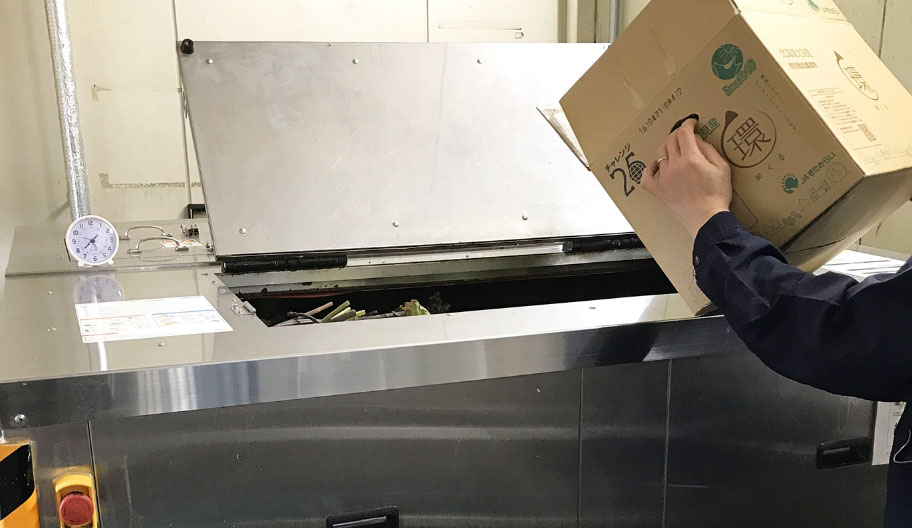
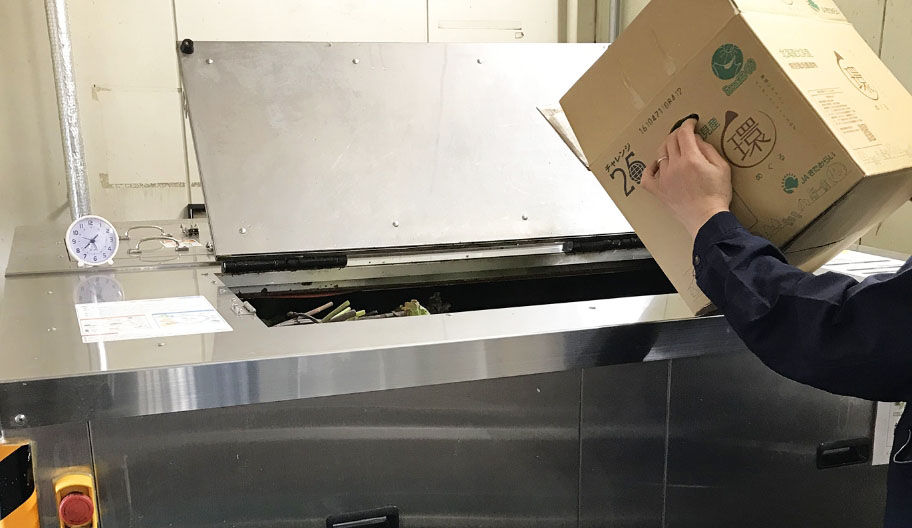
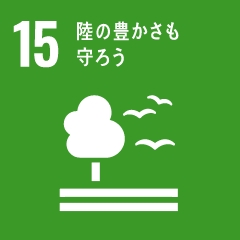
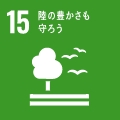
At Hokkaido Branch, we have introduced a bio-based food waste processor to reduce food waste generated during fresh produce processing.
We have obtained Organic JAS Certification for a Repackaging Operator. By distributing and selling organic fresh produce, we support sustainable agriculture that protects soil health.
Initiatives for Reducing Plastic Usage
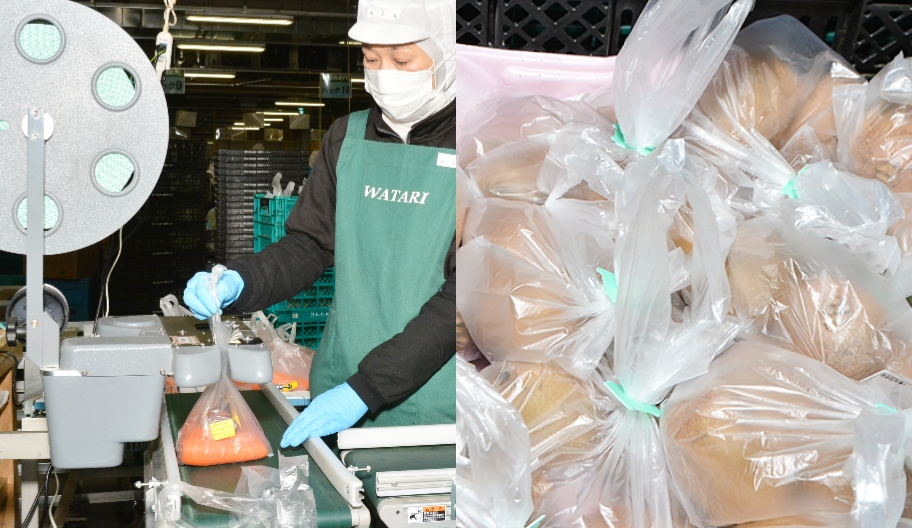
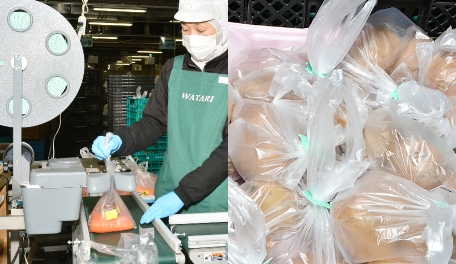




At Ebetsu Agricultural Products Center, we have introduced two semi-automatic bundling machines from Kwik Lok JAPAN to improve bag bundling efficiency and promote eco-friendly packaging.
We use biomass fasteners that contain more than 10% plant-based materials and reduce plastic usage by over 10% for bag bundling.
Agricultural Production Initiatives in Collaboration with Production Areas
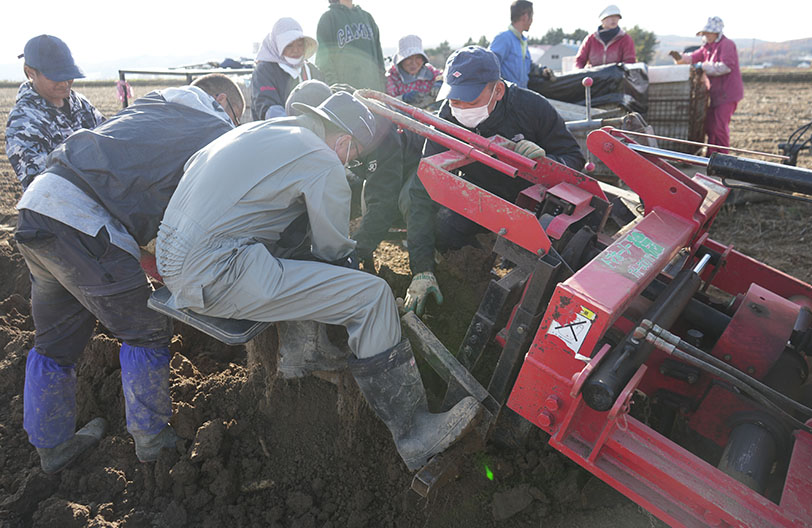
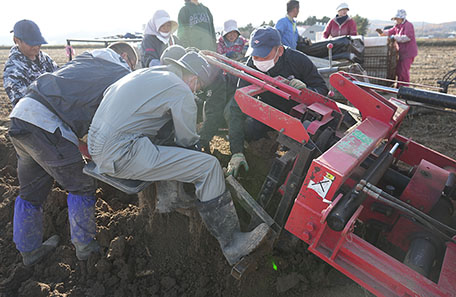
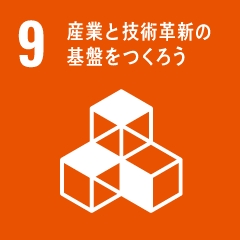
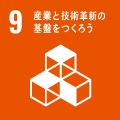
We work closely with production areas to distribute and sell a wide variety of fresh produce while also focusing on sales promotion efforts to boost consumption. Additionally, we support agricultural production in production areas by developing value-added private brand products and ensuring their stable distribution.
Initiatives for Better Work Styles
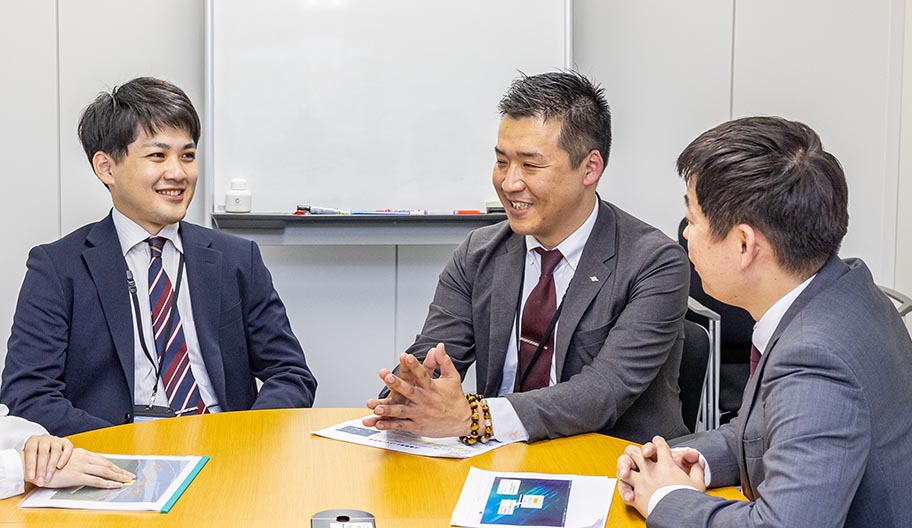
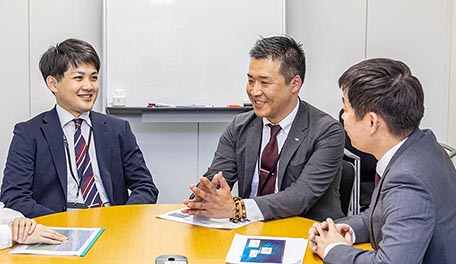
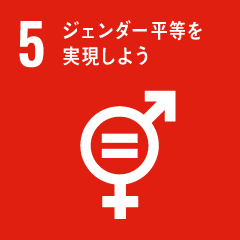
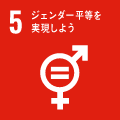


Implementing a personnel evaluation system with clearly defined role requirements makes it easier for employees to set career goals. Additionally, we prioritize education and training, providing support for the acquisition of qualifications and offering both in-house and external training programs.
We are improving the workplace environment by promoting parental leave regardless of gender and establishing a harassment prevention task force.
We are enhancing office environments and IT infrastructure, introducing diverse work styles, and accelerating our fresh produce distribution business.
